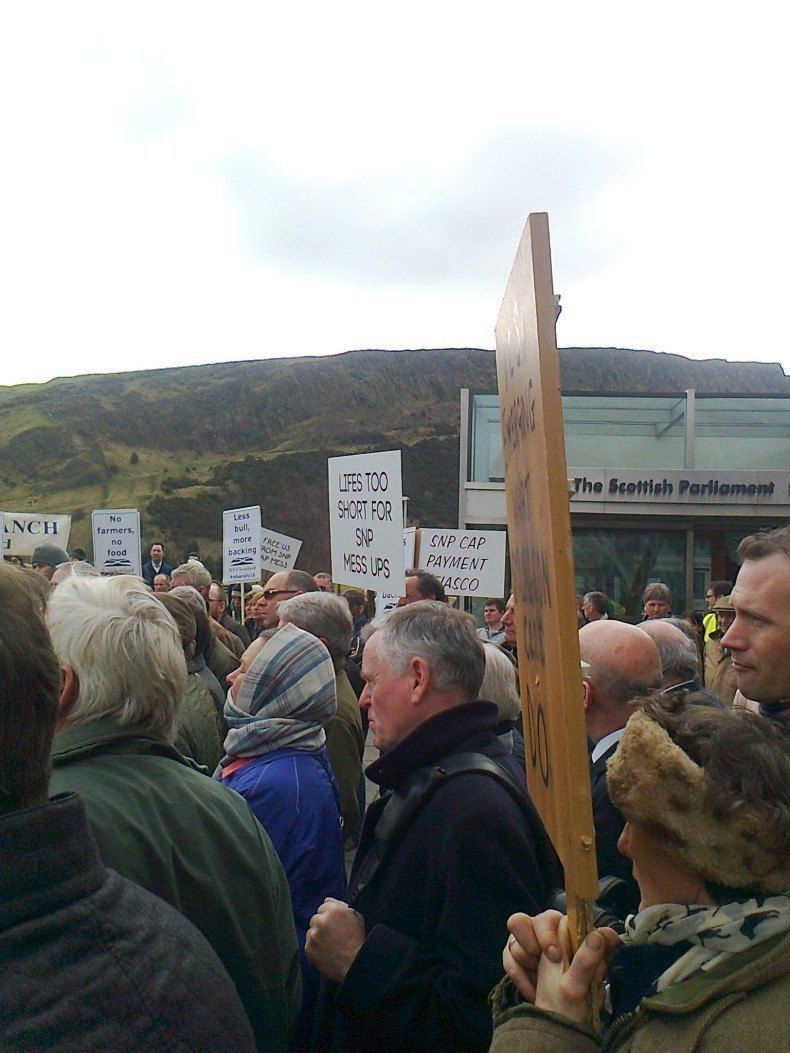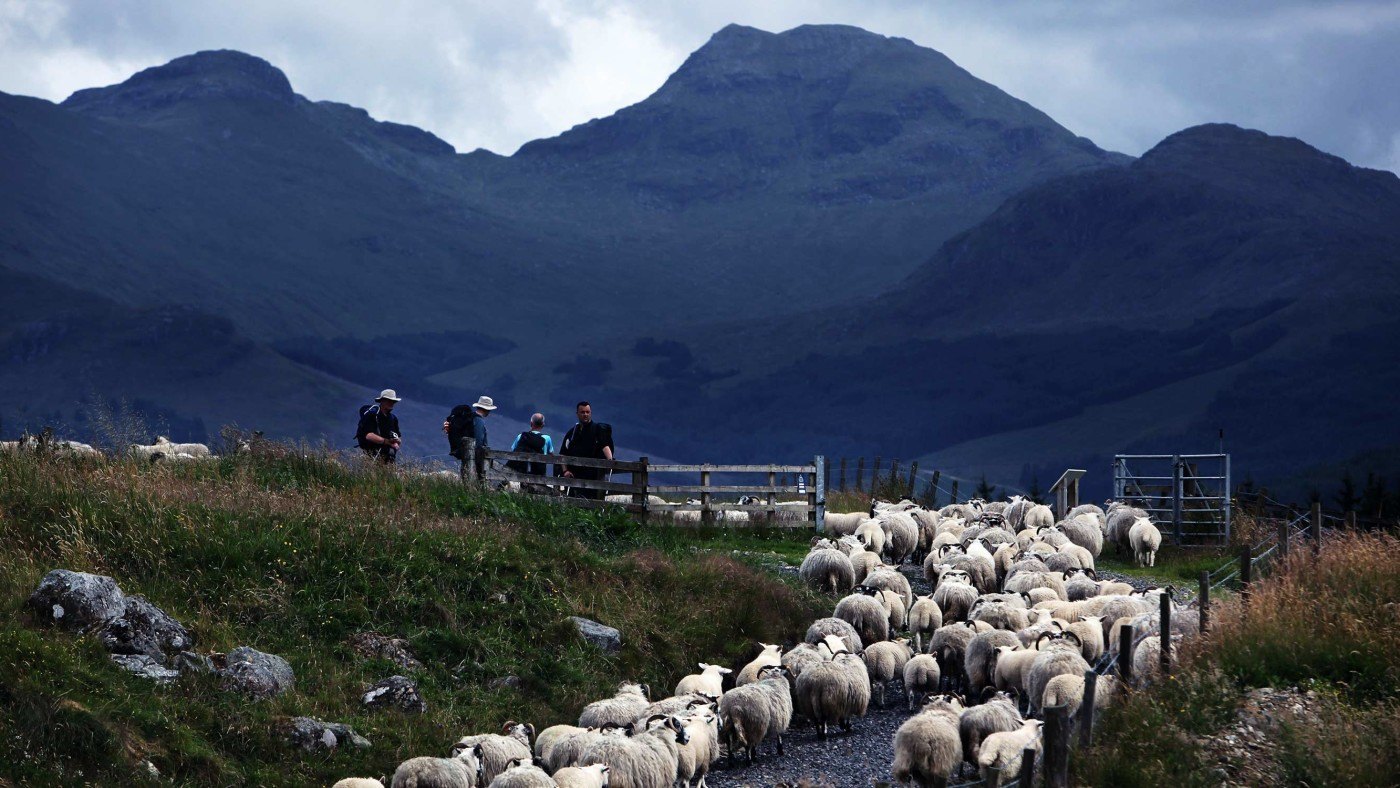This week the Scottish National Party had to put aside campaigning and its tireless efforts to tighten its grip on the sprawling Scottish state. A cock-up some were comparing with the huge overrun on the cost of the Scottish Parliament has left thousands of Scottish farming families in pain and distress.
Facing low prices for farm produce and reeling from months of bad weather, farmers woke up in February to find that Common Agricultural Policy (CAP) funds due by the end of the month were not going to be released.
The villain wasn’t the European Union but the Scottish government. Civil servants had been absorbed with creating an elaborate and costly computer system to dispense these payments. It was late, the cost had doubled to £180 million and it is reckoned that another £120 million would have to be found before it was operational.
The SNP government is not numb to rural issues. It has found plenty of money to try and alter Scotland’s system of land ownership. Breaking up large estates is an ideological hobby horse which perfectly reveals the urban priorities of this separatist force. When pressed last year, the Sturgeon government confirmed that it had conducted no analysis of the impact of its radical land measures on the output of Scotland’s food sector which is worth £790 million per year.
Many farmers face a cash flow crisis. Alan a farmer from Galloway mentioned that in his part of Galloway farmers were relying on the goodwill of animal feed merchants who were extending them credit and even direct funding.
He was one of several hundred farmers at a rally outside the Scottish Parliament on 10 March. It had been called by the Scottish Farmers Union due to crucial parts of the rural economy grinding to a halt. Not only farmers but a host of rural businesses, depending on their spending power, were in distress.
This was actually the first protest rally mounted by the economic sector in the 17-year life of Scotland’s autonomous parliament. It would undoubtedly have been much bigger but for the sudden decision of the Sturgeon government to magic £200 million out of public funds for farmers. After she met with angry farmers leaders, it was announced that this emergency payment would be dispensed by the end of April. Richard Lochhead, the hapless rural affairs minister was bypassed. He was born in an affluent Glasgow suburb and was typical of the careerist managerial types who have flourished since the SNP entered government in Edinburgh in 2007.
The trouble for the First Minister is that she has nobody to replace him with from her 64 parliamentary colleagues. Not one is a working farmer like Alex Fergusson the Galloway hill farmer who was the Presiding officer of the Scottish parliament from 2007 to 2011. Most have been in full-time politics after relatively brief careers in a range of urban professions. This is even true of the parliamentarians from the rural parts of Scotland where the SNP began its march to power in the 1970s.
The debate on the rural crisis held on 9 March showed this only too well. The SNP members (MSPs) who spoke like Rob Gibson, Michael Russell and Joan McAlpine are big city figures absorbed with English slights, Scottish culture or the BBC’s continuing British orientation rather than with how to keep hardpressed farmers on the land and prevent rural communities dying on their feet.
Speaking at the rally, Ruth Davidson, the leader of the Scottish Conservatives, did not mince her words:
‘If this was an issue affecting urban Scotland, it would have been sorted long ago.’
At her party’s well-attended and upbeat conference last week, Alex Fergusson remarked that instead of empathy, ‘there is a lot of suspicion shown towards rural Scotland in the Scottish parliament’.
John Swinney, Scotland’s finance minister, spoke at the rally for much longer than anyone else. His ability to extract a favourable financial deal from Whitehall, which means that taxpayers beyond Scotland will subsidise reinforced Scottish devolution, has given him a magisterial air. He insisted that there was strong support for Scottish farming in his government without offering any evidence. He flatly refused to agree to an independent inquiry into a botched IT scheme for farm payments that may end up being almost as costly as the construction of the modernist parliament building at Holyrood was after 1999.
He got a polite hearing but the farmers from the Borders, Galloway and Fife to whom I talked felt they were being patronised and fobbed off with a short-term fix. At least Sturgeon earned some appreciation by intervening and taking over from yet another of her struggling colleagues.
Scotland’s first minister presides over an inefficient and heavily bureaucratised state which is a drag on an economy that, in key respects, is now performing less well than in the rest of the UKs. Perhaps she realises that when stirring nationalist rhetoric finally ceases to mesmerise Scots galvanised by the 2014 referendum, her government could be in major trouble.
It was the Scottish Conservatives that sowed panic in SNP ranks by tabling a motion for action on the rural front on Monday and securing £200 million pounds to alleviate hardship the next day. The Labour Party has never troubled the SNP in this way for many years and it may be a harbinger of change to come.
With a change of the guard taking place in Scottish Tory ranks, a David and Goliath struggle looms with the SNP. The Tories may still only have a third of the SNP’s parliamentary contingent after elections due in May, but many will be of a far superior calibre than the nationalist placemen in Holyrood (some of whom still need to have their speeches written for them by special advisors). It will be ironic if the beginning of the end of the SNP’s hegemony in Scotland occurs thanks to the revival of a party not so long ago given up for dead.



